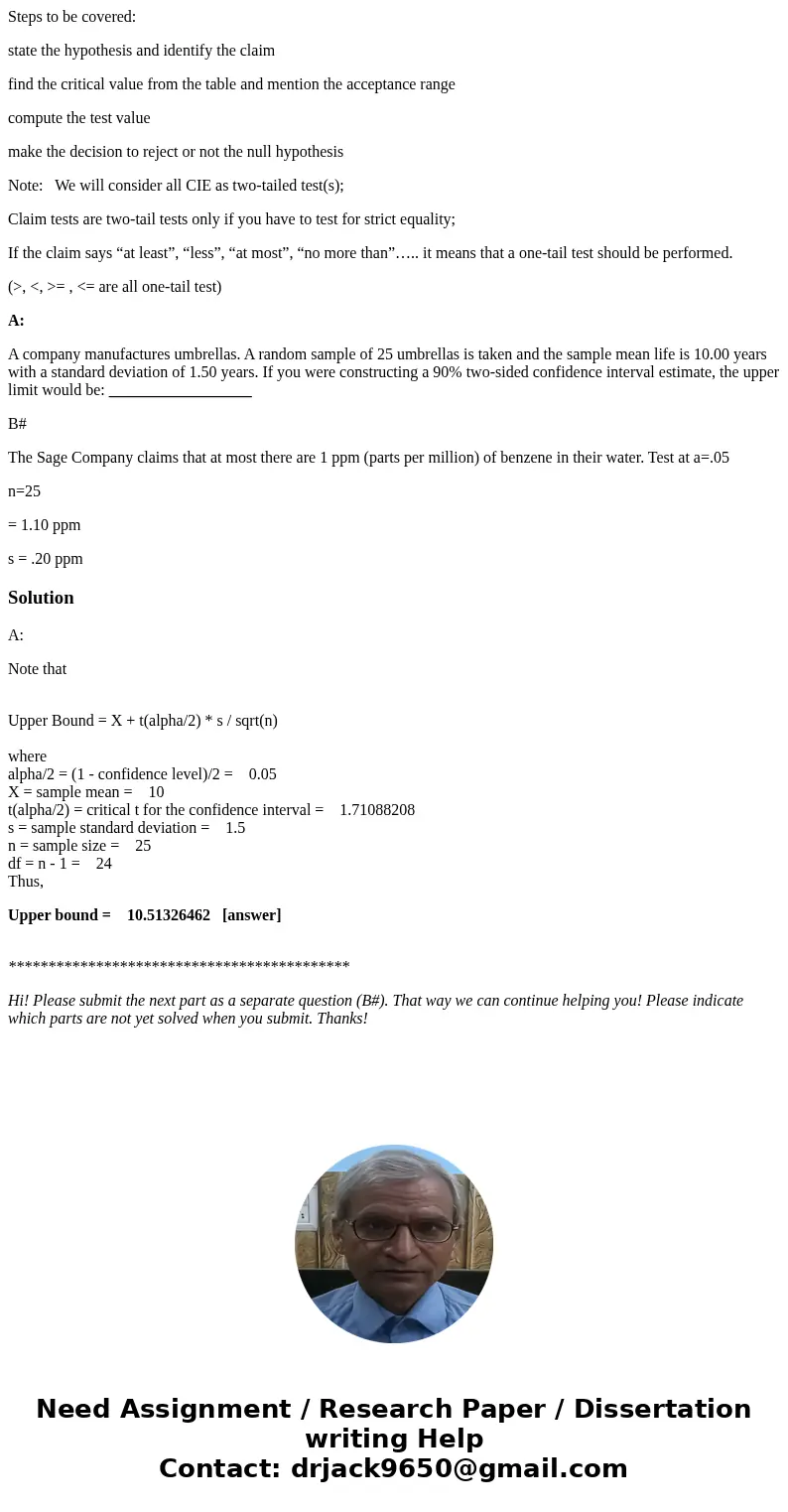Steps to be covered state the hypothesis and identify the cl
Steps to be covered:
state the hypothesis and identify the claim
find the critical value from the table and mention the acceptance range
compute the test value
make the decision to reject or not the null hypothesis
Note: We will consider all CIE as two-tailed test(s);
Claim tests are two-tail tests only if you have to test for strict equality;
If the claim says “at least”, “less”, “at most”, “no more than”….. it means that a one-tail test should be performed.
(>, <, >= , <= are all one-tail test)
A:
A company manufactures umbrellas. A random sample of 25 umbrellas is taken and the sample mean life is 10.00 years with a standard deviation of 1.50 years. If you were constructing a 90% two-sided confidence interval estimate, the upper limit would be: __________________
B#
The Sage Company claims that at most there are 1 ppm (parts per million) of benzene in their water. Test at a=.05
n=25
= 1.10 ppm
s = .20 ppm
Solution
A:
Note that
Upper Bound = X + t(alpha/2) * s / sqrt(n)
where
alpha/2 = (1 - confidence level)/2 = 0.05
X = sample mean = 10
t(alpha/2) = critical t for the confidence interval = 1.71088208
s = sample standard deviation = 1.5
n = sample size = 25
df = n - 1 = 24
Thus,
Upper bound = 10.51326462 [answer]
*******************************************
Hi! Please submit the next part as a separate question (B#). That way we can continue helping you! Please indicate which parts are not yet solved when you submit. Thanks!

 Homework Sourse
Homework Sourse